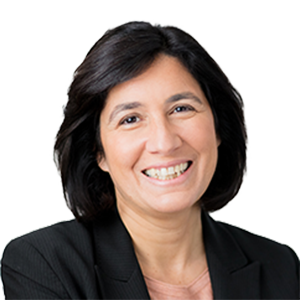Interest in special purpose acquisition companies (SPACs) has globally reached new heights.
SPAC transactions, so far in 2021, account for nearly 75 percent of initial public offering (IPO) activity in the United States. While in Europe, London remained the most popular market for SPAC IPOs in 2020 and so far in 2021, other markets including in particular Amsterdam have also attracted a number of SPAC IPOs.
After a long period of many US SPACs merging with US targets, we are now seeing US SPACs, as well as European SPACs, in pursuit of non-US targets with significant interest in the emerging markets.
To find out exactly what advantages a SPAC transaction may offer to Turkish companies, Ayşe Yüksel Mahfoud, Global Head of Corporate, M&A and Securities and our Istanbul Partner-in-Charge, recently spoke with Norton Rose Fulbright partners Thomas Vita and Trevor Pinkerton.
“A highly commended firm offering in-depth knowledge across the full gamut of capital market transactions.” Chambers Global, 2020
Ayşe:
Trevor, let's start with a brief introduction—what is a SPAC, how does a SPAC transaction work and who generally uses them?
Trevor:
SPAC is short for "special purpose acquisition company," which is a corporation formed by a sponsor group for the purpose of raising capital and pursuing a business combination with a target operating company. The sponsor takes the SPAC through an IPO of units (consisting of stock and warrants) to raise the capital to be used in the business combination. The business combination is called the de-SPAC.
The funds raised in the IPO are placed in a trust account and the SPAC management seeks a de-SPAC target, with the ultimate aim that the operating target (or a holding company of that operating company) becomes a publicly listed company going forward. The target shareholders receive some combination of stock of the public company and cash, and a portion of the cash remains in the target as operating capital. The cash is provided by the trust account of the SPAC and funds from a PIPE investment (a private investment in public equity).
A unique feature of most SPACs is that the public investors in the SPAC may choose to redeem their shares for cash in connection with the closing of the de-SPAC transaction instead of receiving the shares of the new combined public company.
SPACs are popular with investors in the initial public offering, as they provide a chance to invest in a sponsor/management group and then have the option to participate in the de-SPAC or have their shares redeemed for cash prior to the closing. For target companies, SPACs have become a popular alternative to a traditional initial public offering, as they combine:
- more certainty of execution,
- potentially faster timeline,
- potentially larger infusion of capital in connection with the business combination, and
- the ability to use projections of the operating company in disclosure.
We have recently done several podcasts that provide additional information about SPACs, discuss some of their key features, and identify some of the key reasons why they are so popular. We would encourage you to give them a listen.
Ayşe:
Rather than engaging in a de-SPAC business combination, many Turkish companies have historically looked to private equity or venture capital financing for their growth capital. Why consider merging with a SPAC to raise such capital instead?
Tom:
A de-SPAC, often effected through a reverse merger of the target business into a publicly-traded SPAC, may be viewed by businesses as an alternative way for companies to obtain later-stage growth capital rather than through private equity or venture capital financing.
The target business may prefer such an approach for a number of reasons. Importantly, a de-SPAC offers the opportunity to in effect raise capital through common shares, rather than through preferred shares that may have significant down-side protections and control rights.
Additionally, it allows the target business to immediately gain the benefits of being a public company, including an increased public profile and the improved access to additional capital. While a de-SPAC typically does not allow for complete target shareholder liquidity from the time of completion of the business combination, such liquidity is often likely to occur sooner than would be the case with a private equity or venture capital financing.
Trevor:
That said, a de-SPAC requires the target business to take on the burdens of being a public company almost immediately, along with the associated costs, which may be difficult for the existing management team and may distract the management team from the execution of the business' strategy.
In addition, closing a de-SPAC typically will take longer than a venture capital or private equity sale process and involves additional steps that are not associated in such transactions (including a public proxy solicitation in order for the SPAC's shareholders to approve the transaction and allowing for the SPACs shareholders to redeem their shares, as is typically required).
These steps may also lead to the need to renegotiate the terms of the business combination, introducing an element of price uncertainty into the transaction not present in a VC or private equity transaction.
Tom:
A private equity or venture capital financing is typically significantly less expensive than a de-SPAC business combination; however, such a transaction may better be seen as merely deferring the cost of a subsequent initial public offering (or indeed a de-SPAC) until later in the life of the target business.
Consequently, while a de-SPAC would not make sense for all Turkish businesses, for some that are ready and interested in becoming a public company, it may be an attractive alternative to private equity or venture capital financing.
“Over the past three years Norton Rose Fulbright advised on over 500 M&A deals globally with a total value of over US$235 billion.” Mergermarket, 2020
Ayşe:
Given how few Turkish companies have chosen to list in New York, is a business combination with a SPAC listed in another market such as London or Amsterdam possible?
Trevor:
Yes, while the vast majority of SPACs have conducted their initial public offerings in the United States and have obtained listings either on the New York Stock Exchange or the NASDAQ, there are also a number of SPACs listed on other internationally-focused stock markets.
Tom:
For example, the London Stock Exchange has long attracted initial public offerings by SPACs. According to the London Stock Exchange, during the last five years, over 50 SPACs have listed in the UK and over US$2 billion has been raised by SPACs on the London Stock Exchange since 2017. In addition, in April 2021, the UK Financial Conduct Authority published a consultation setting out proposed additional investor protection measures for standard listed SPACs designed to make SPACs more attractive to investors. It is expected that these rule changes, if adopted in the form proposed, will only lead to an increase in the number of London listed SPACs looking for targets in the United Kingdom, Continental Europe and elsewhere.
Additionally, Euronext Amsterdam has recently attracted a number of SPAC IPOs and is seeking to position itself as an alternative listing venue to London for SPACs formed with the purpose of acquiring one or more European or other non-US target businesses.
Pursuing business combinations with SPACs listed in these markets may prove to be more attractive to Turkish target businesses for a number of reasons. While both London and Amsterdam have high corporate governance standards comparable to those in the United States, compliance with those standards is generally less burdensome and costly than being a public company in the United States. Additionally, neither market has developed the securities liability and class action regimes that make litigation at the time of a de-SPAC business combination by a US-listed SPAC much more likely whether or not that litigation ultimately succeeds on its merits. Moreover, not seeking a US listing does not mean the SPAC cannot raise money from large institutional investors in the United States and, indeed, the larger SPAC offerings in both London and Amsterdam, typically include offers and sales to so-called "qualified institutional buyers" in the United States when conducting their initial public offering in their home market.
For a discussion of London-listed SPACs and how they differ from New York-listed SPACs, please see our briefing: SPACs: The London alternative.
Ayşe:
What about closer to home? There are no SPACs listed on the Borsa Istanbul – what are the prospects?
Tom:
While there are currently no Borsa Istanbul-listed SPACs, the listing of SPACs in Istanbul has been permitted since the publication in December 2013 of the Communique on Mergers and Demergers (Communique No. II-23.2) article 4(1)(b) by the Capital Markets Board ("CMB"). We believe the current level of interest in SPACs may mean that potential SPAC sponsors may reassess the Borsa Istanbul as a potential listing venue for SPACs focused on acquiring Turkish businesses.
Ayşe:
Thank you both, this is most insightful.
Clearly, given the number of a newly-minted SPACs in New York and elsewhere looking for an initial business combination, a de-SPAC may be an attractive alternative route for Turkish operating businesses to raise growth financing and become public companies.
Likewise, potential SPAC sponsors particularly interested in Turkish target businesses have a number of options including, but not limited, to New York as their listing venue.





